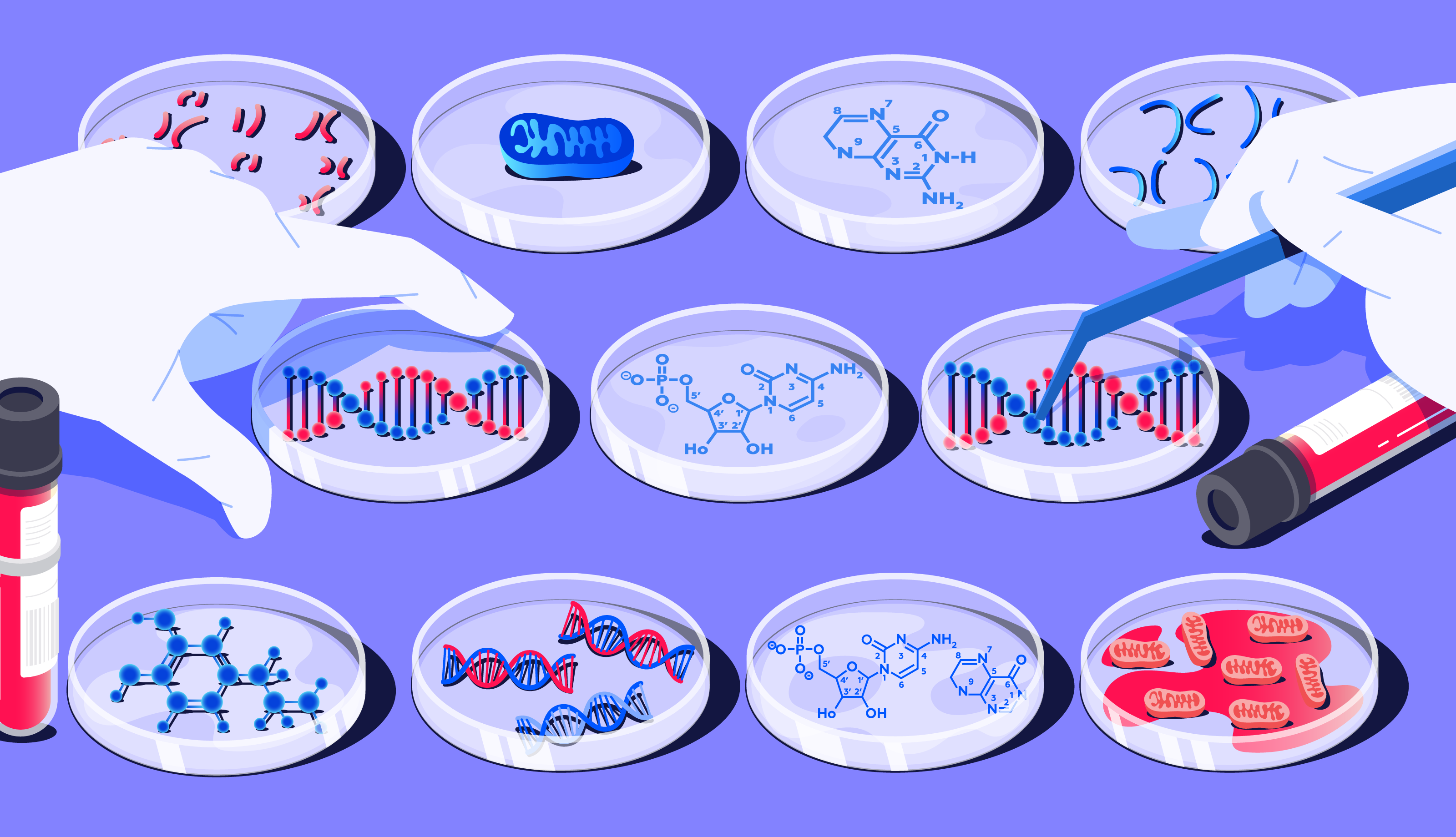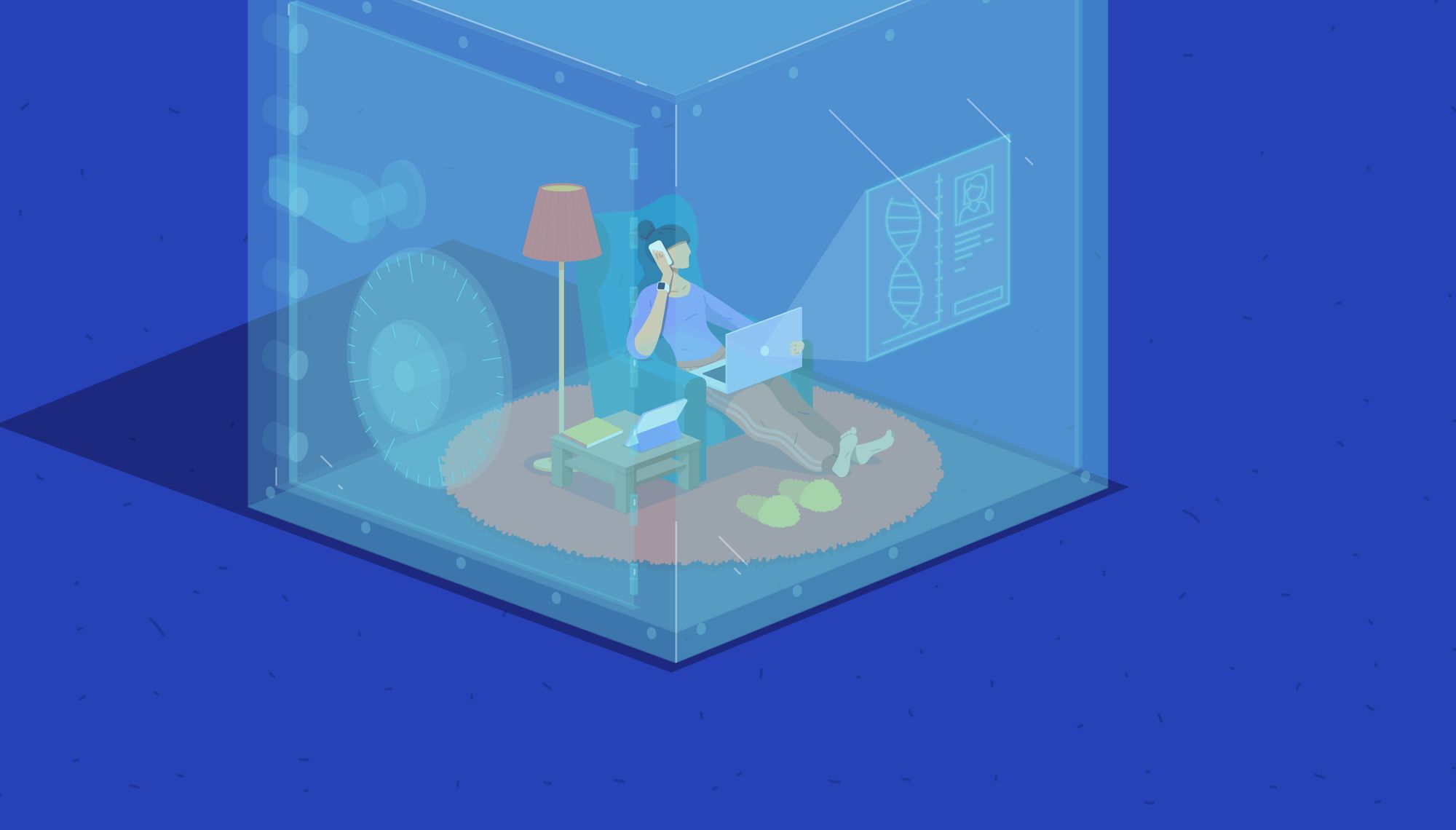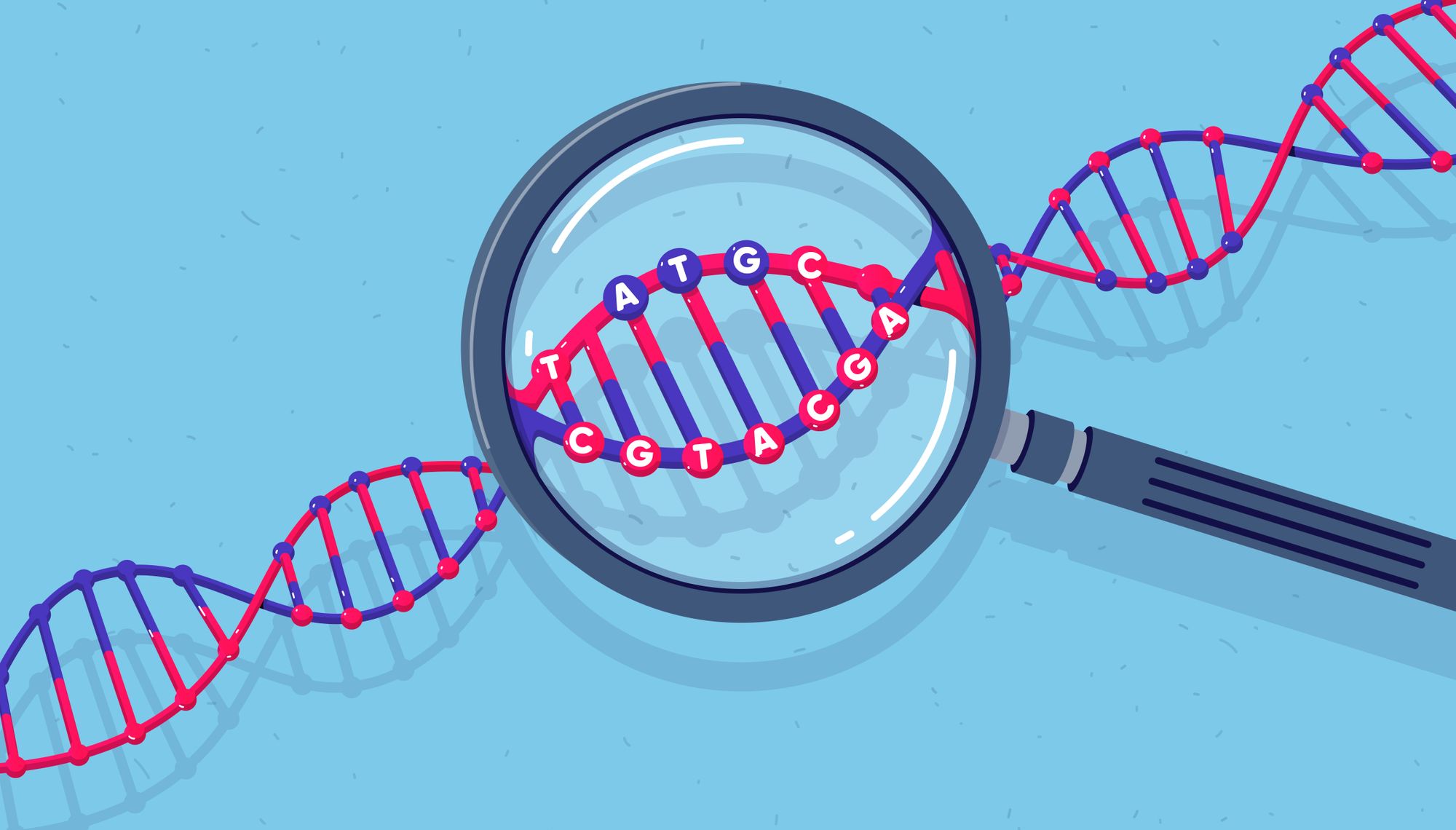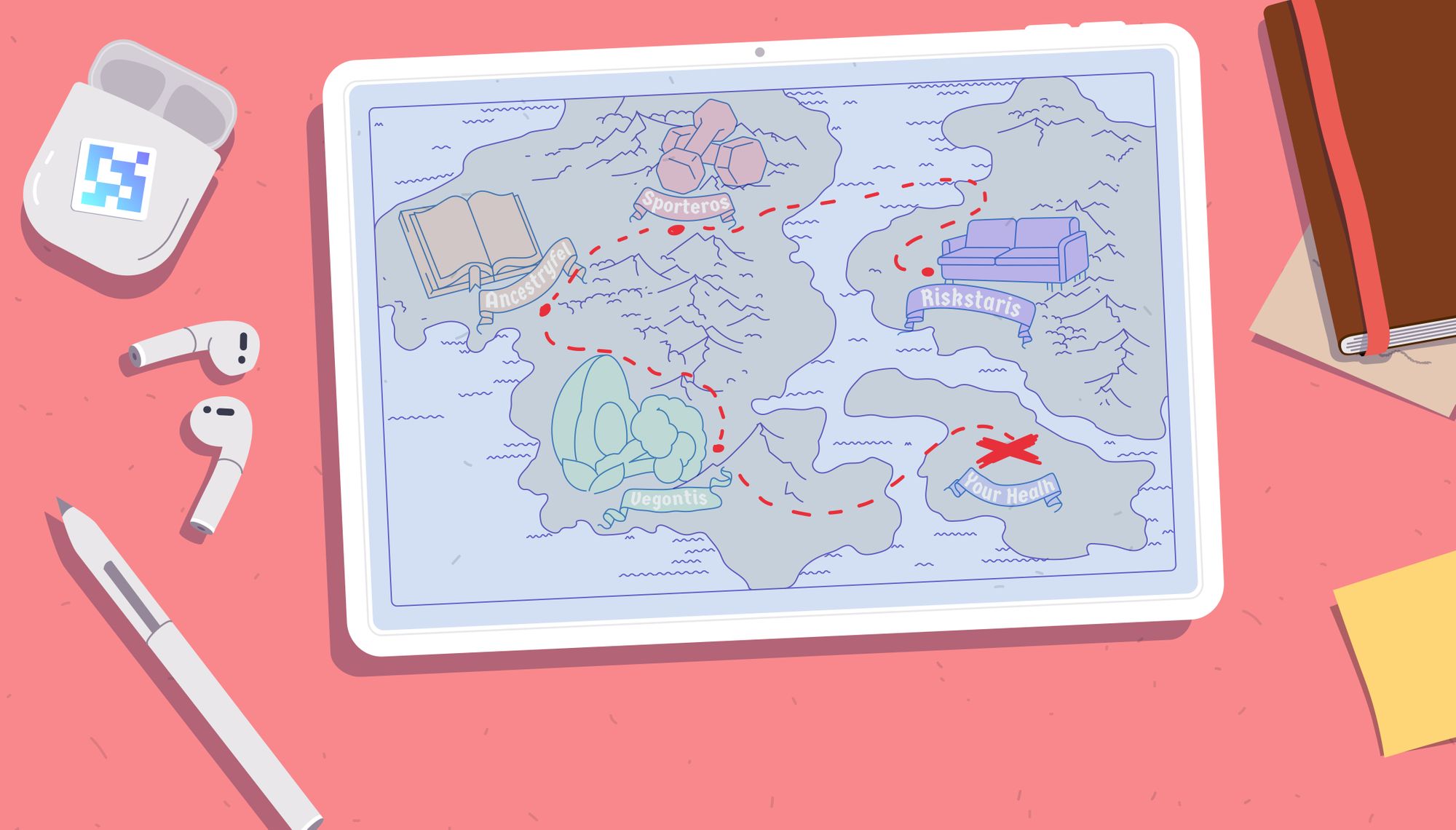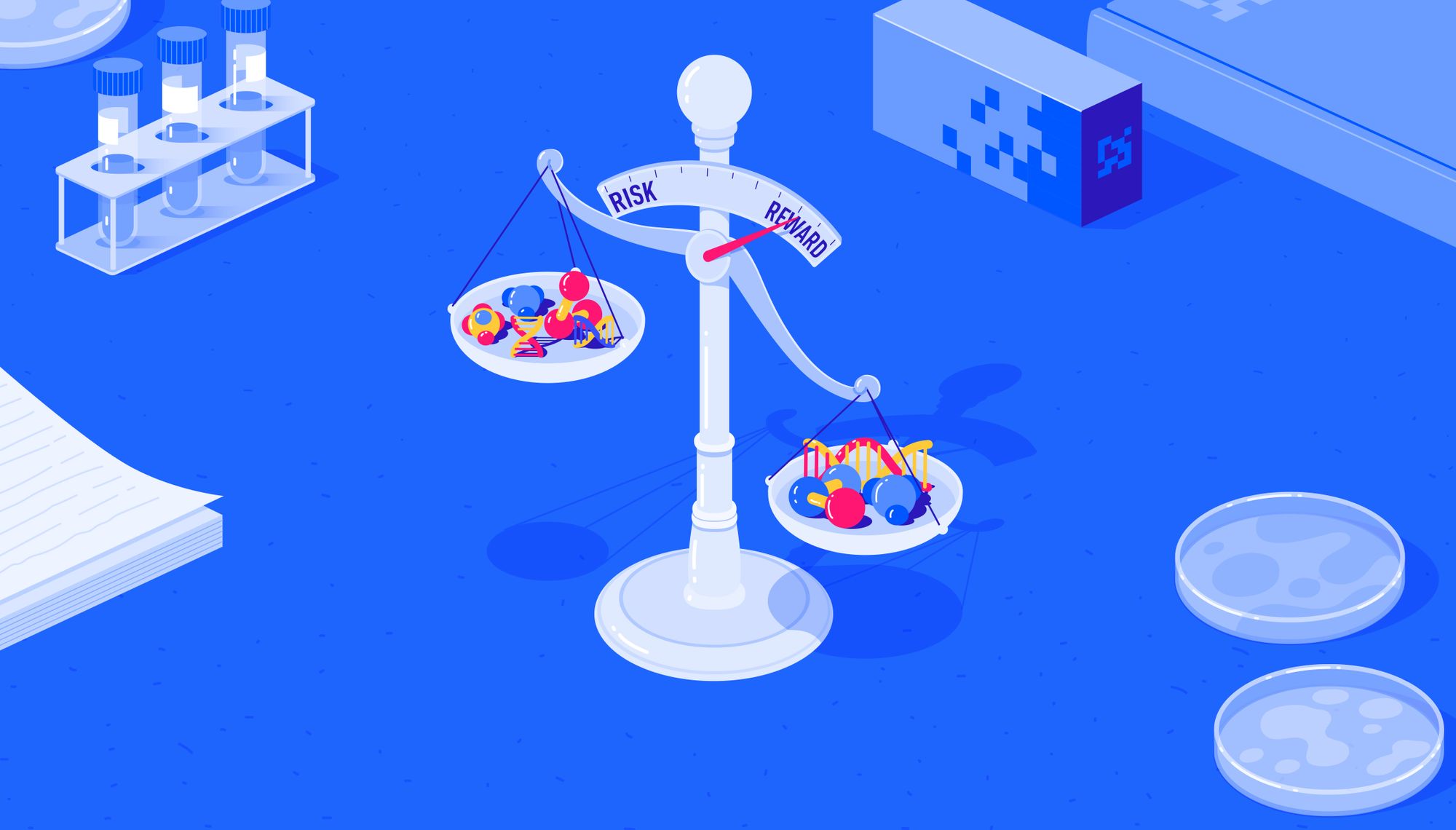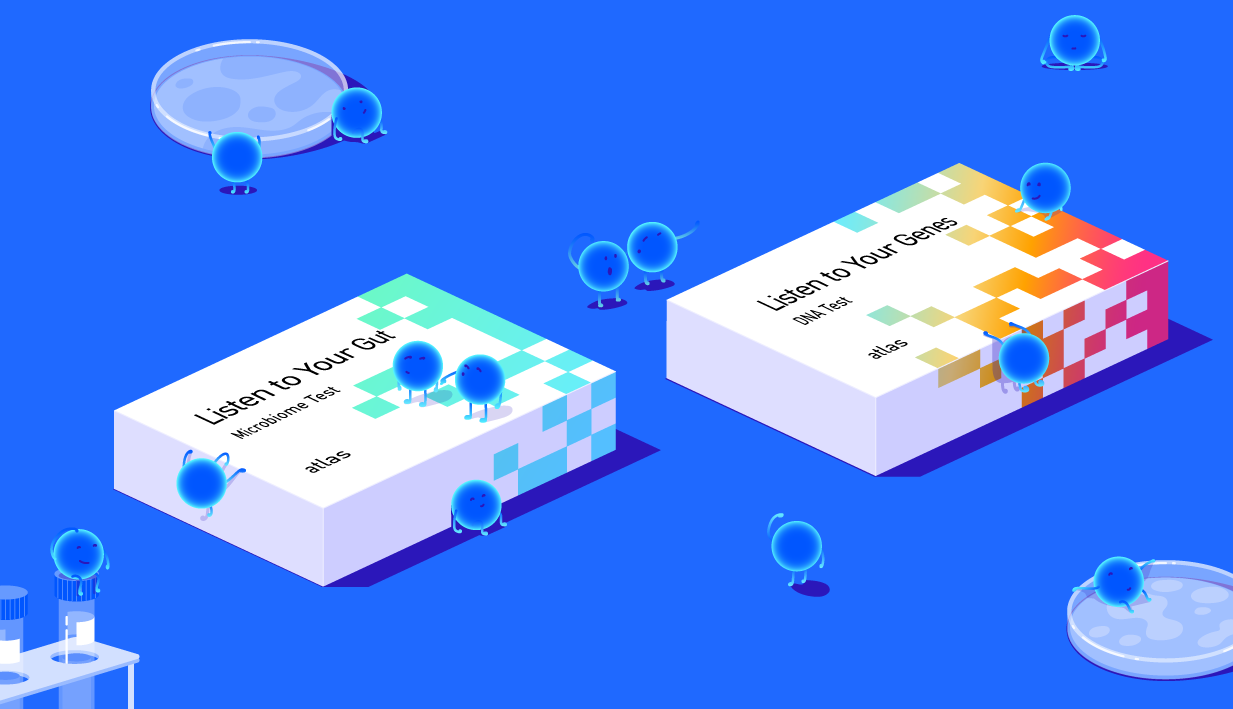At-home DNA testing seems pretty transparent and clear: send off your sample and get unique facts about yourself. But what exactly happens to your 4-letter code?
Someone's genome is as private as personal information can get – it is literally your blueprint. There is a lot of struggle in modern science to keep research fair and ethical, especially when it comes to patient data.
Inevitably, there are some important considerations and key dilemmas that consumers face now that they can get at-home DNA testing. Here's what you need to know.
| Data security: | your genetic information is important |
| Gene ethics: | on the science and regulations |
| Data ownership: | always read the Terms and Conditions |
| Confidentiality: | results can affect your family too |
| TMI: | decide what information interests you |
| Science and tech: | who’s analysing your data with what hardware? |
| Second opinions: | who to consult and risks of third-party services |
Responsible data handling 101
Before we delve into genetic ethics, you need to understand where the data comes from and where it is stored.
At Atlas Biomed, we use Illumina genotyping technology to check for about 700,000 data points in your genetic information. Making sense out of this massive dataset requires a sophisticated algorithm that can evaluate different traits and disease risks contained in these lines of code.
Furthermore, many people who take DNA tests don't have a medical background, and may not understand complex terminology like odds, ratios, graphs, and percentages. That's why any DNA test provider should be able to present and explain this information in a simple and clear fashion.
At Atlas Biomed, our interface uses simple and clear English. There’s also an app, and we can help you book a genetic counselling session with an expert to explain your results.
Gene ethics 101
Data protection measures are just the beginning, what about the questions you didn’t know to ask?
Being able to test your DNA brings up dilemmas that, as a society, we never had to confront before. Getting bad news may not only affect you, but your family members and future children.
In addition to that, as DNA testing becomes widespread, there are companies who may sell "unique" genetic insights to attract customers with fresh findings, but where do their results come from, and how reliable are they?
Some companies offer genetic “diet” solutions, others sell specialised “sports” kits, and some say that they can recheck the raw data from a test like ours to reveal even more about your health. But it’s important to take a step back, review their terms and conditions, and consider whether there’s enough evidence to justify such findings.
We want to share our experience with you so if you decide to get your DNA tested, you know what questions to ask, what to look for, and what to expect when you uncover your body's unique blueprint.
Dilemma №1: Who owns the data?
Secure storage of your information is not the end of the deal, you also need to know who owns your personal data.
Intuitively, you think it is yours, but you should still carefully check the DNA testing company’s Terms & Conditions.
At Atlas Biomed, you retain complete ownership of your data and samples. We may explicitly ask for your consent to use an anonymised version of your data for research purposes, and you have the right to refuse. You can also request to dispose of your sample and delete your personal data.
However, other DNA testing companies have made the headlines in the past for selling anonymised data to third parties, so if you agree to let a company use your data, please read their Terms and Conditions carefully.
Terms and Conditions are boring but they contain essential information
European General Data Protection Regulation (GDPR) and other national data protection laws aim to improve the situation, but cannot fully warrant your data’s safety because it’s very hard to audit every single company with an online presence.
But is sharing genomic data always bad? When it is done commercially, it does leave a bitter feeling. But what about research? Our knowledge about gene functions comes from non-profit academic work done in universities across the globe.
Such research can be starved for data samples. Current methods require hundreds and thousands of disease carrier genomes. Sharing anonymous genomic data can facilitate the scientific progress, especially in rare disease research.
Dilemma №2: Do you want to know everything?
There are many reasons to take a DNA test. You can be curious about your ancestry, want to improve your lifestyle, or find out your health risks.
It's important to understand what you are getting yourself into when you get a DNA test. For example, the Atlas DNA Test is designed to assess hereditary and chronic disease probabilities, and help users find ways to prevent illness with lifestyle changes.
So it's important to understand what your motivations are, because DNA testing doesn't guarantee positive results and answers about your health. It can be stressful to find out some health information.
For instance, although rare, the results may reveal that you carry a pathogenic variant of BRCA1 gene that significantly increases the lifetime risk of developing breast cancer.
If it does, we will recommend you consult an expert. But you must be prepared for the possibility that you might learn something that could change your life.
People that get a DNA test to learn about their genetic ancestry may not want to know about potential disease risks. If that's not your cup of tea, you should choose a company that tests ancestry data without checking for gene variants associated with diseases.
Dilemma №3: Ethical breach of confidentiality
When you take a DNA test, you can learn information that might affect your family. In some cases, it can even lead to a court case.
A recent trial in the UK demonstrates how choosing not to disclose an important DNA test result can present an ethical problem. A man diagnosed with Huntington’s disease decided not to tell his family about the disorder. Subsequently, when his daughter found out she had the disease gene as well, she was already pregnant.
Huntington’s disease is caused by a single gene defect, which means there is a 50% chance of passing it on to your kids. It is incurable. Early diagnosis can help couples make the right decisions about having kids and whether assisted reproductive technology is the suitable option for conceiving a healthy baby.
Cases like these highlight some of the complexities of DNA testing. The Atlas Biomed tests aren’t for diagnostic purposes, and we don’t check for Huntington’s disease, but this is a salient example of how genetic information can change lives, and not just your own.
In some cases, future parents might decide to sequence their genomes before having a baby, especially if there is a history of illness or hereditary disease in the family. You can read more about it in this article (on the right).
DNA testing can identify genes associated with specific health conditions that may put children at risk, but it's important to give customers access to a genetic counsellor to guide them in making important decisions for a healthy baby.
While routine sequencing on national scale may not be available yet, it has the potential to significantly reduce the incidence of hereditary diseases.
If you are interested in our genetic counselling services, contact [email protected] for more information.
Dilemma №4: In science we trust!
Every month, journals publish new papers describing gene functions and their effect on health, but the findings may not always hold true.
The scientific investigation process is rigourous - one clinical trial or a single study is rarely enough to ensure these findings are applicable to everyone.
That's also why we include a lifestyle and medical questionnaire, as well as microbiome testing. With the exception of hereditary diseases, it's a combination of many factors that influence health outcomes.
These and other limitations are recognised by Atlas Biomed specialists, who select reliable data to add to the DNA test algorithm because not all gene functions and their effects on health are well-studied.
In fact, there's still a lot left to discover. At the Atlas Biomed offices, several geneticists are involved in reviewing and deciding whether a new study is reliable and suitable for the test results and users. Our focus is on providing accurate and actionable results.
We have chosen to use world-class Illumina genotyping technology performed in an EU-approved lab, and we only check for the most common and reliable gene variants. Once the results are in, a geneticist audits an anonymous version of them to ensure there are no issues.
Data interpretation is not the only major scientific challenge in commercial genetic testing. Companies that offer these tests rely on different technology, machines, and methods.
These are important considerations when choosing what company should analyse your genetic data because it is precious, it is life-changing and it must be handled responsibly.
Dilemma №5: Can a second opinion hurt?
When you test your DNA, you can download your raw genetic data and send it to a third-party company for analysis. But is it a good idea?
Commercial DNA testing companies like Atlas Biomed employ experts to select the traits and discard any that might not yield accurate results. However, some third-party companies may check for unreliable gene variants and provide results that are not necessarily accurate.
Consult a genetic counsellor if you have questions about your results
In the past, some people who used these third-party services have received incorrect results, which led to great distress. It was only after a diagnostic testing by the NHS that these results were shown to be inaccurate - these people were healthy after all.
It’s important to remember that commercial DNA tests are not diagnostic tools - they are for informational and educational purposes only. For example, the Atlas DNA Test is designed to identify the most common and reliable gene variants associated with hereditary diseases.
Some people may have rare gene variants that are not checked for. This is why, if there is a history of hereditary disease, you must consult a GP for diagnostic testing. DNA tests are not a substitute for medical advice.
Medical professionals call for extra regulations for commercial DNA tests. Atlas Biomed agrees and supports government-driven initiatives to regulate this field.
But what should be done? As it stands, governments around the world are debating on how to regulate this industry in order to ensure patient data safety, and peace of mind.
Takeaways:
When you're choosing a DNA testing company, you should keep in mind these five crucial aspects:
- Do they use certified equipment and methods fit for the task?
- Is your genetic and personal information handled and stored safely?
- Who owns your genetic data and results?
- Are the results based on reliable scientific data?
- Do they give you clear results and access to genetic counselling?
Whether you choose us, or another provider, it is our duty as a pioneering company in the field of commercial DNA sequencing to help you understand the importance and complexities of discovering your genetic information.
If you would like to know more about our services, contact our customer service team at [email protected].

